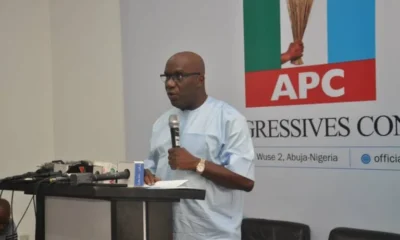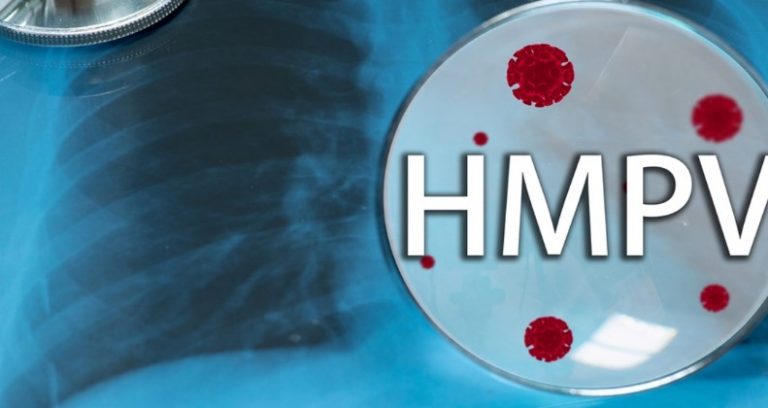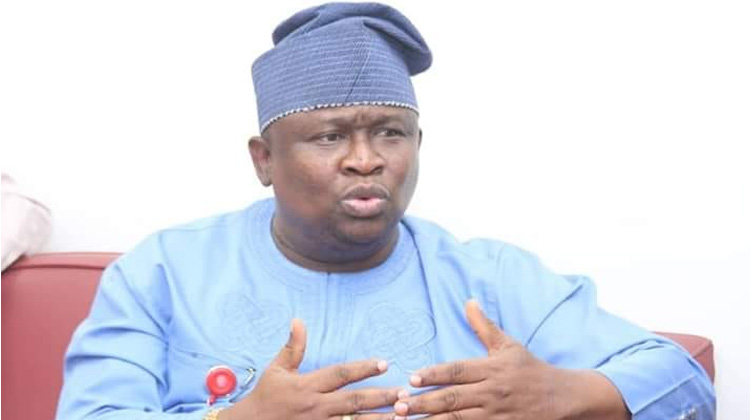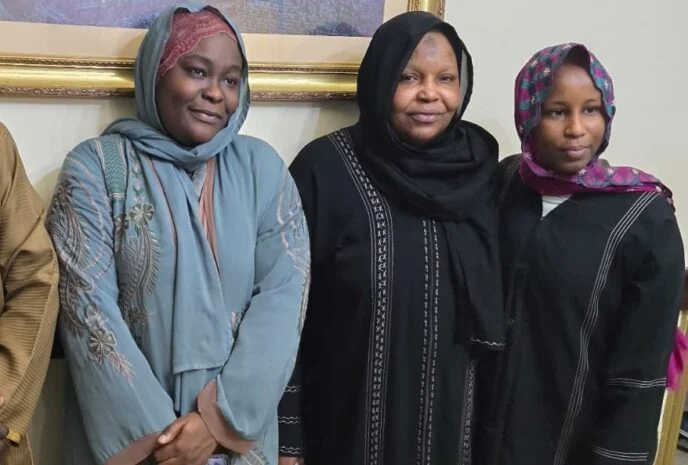- Experts demand proactive steps as new virus surges in China, ravages children
The Federal Government on Sunday said it would activate surveillance measures for inbound passengers from China following the current surge of a respiratory virus.
Reports indicate that the virus has led to overcrowded hospitals, emergency measures, and public concerns in China.
The virus, attributed to the “Human Metapneumovirus,” has seen cases spiking across northern Chinese provinces this winter, particularly among children. Neighbouring countries such as Cambodia, Taiwan, and Hong Kong are closely monitoring the HMPV situation, having reported a few cases but no widespread outbreaks, according to reports.
According to Chinese authorities, there has been a noticeable increase in HMPV cases, especially among children under 14 years old in northern parts of the country. Social media posts, accompanied by videos of overcrowded hospitals, have sparked fears of a larger-scale health crisis.
In response to the rising cases, the Chinese government announced measures, including constant monitoring of cases, the adoption of masks, social distancing, and disinfection of public spaces to curb the increase of the virus.
The new virus outbreak is coming five years after the emergence of a novel coronavirus – “COVID-19” – in Wuhan, China, which was declared a global pandemic by the World Health Organisation on March 11, 2020.
So far, COVID-19 has infected 777 million people globally and killed over seven million, according to WHO.
However, while both HMPV and COVID-19 are respiratory illnesses, there are important differences. HMPV typically causes milder symptoms such as a cold or flu, while COVID-19, caused by the SARS-CoV-2 virus, can lead to more severe health complications and long-term effects.
HMPV is also a seasonal virus, similar to other cold-causing pathogens like RSV, and infections usually peak during the winter months. HMPV, like COVID-19, spreads through respiratory droplets when an infected person coughs or sneezes and it can also spread via contaminated surfaces.
However, officials from the National Health Commission stated that while respiratory diseases are expected to rise during the winter months, the overall situation this year is less severe than last year.
Beijing also downplayed the developments as an annual winter occurrence.
China’s foreign ministry spokesperson Mao Ning said on Friday, “Respiratory infections tend to peak during the winter season. The diseases appear to be less severe and spread with a smaller scale compared to the previous year,” she said.
A pilot programme was launched by China to track pneumonia of unknown origin, ensuring labs and health agencies reported and managed cases more effectively, state broadcaster CCTV reported, quoting an administration official at a news conference.
The US Centers for Disease Control and Prevention said HMPV could cause upper and lower respiratory diseases in people of all ages, especially among young children, older adults and people with weakened immune systems.
The U.S CDC noted that HMPV is most likely spread from an infected person to others through secretions from coughing and sneezing, close personal contact and touching objects or surfaces that have the viruses on them, then touching the mouth, nose, or eyes.
“Symptoms commonly associated with HMPV include cough, fever, nasal congestion and shortness of breath. Clinical symptoms of HMPV infection may progress to bronchitis or pneumonia and are similar to other viruses that cause upper and lower respiratory infections. The estimated incubation period is three to six days, and the median duration of illness can vary, depending upon severity but is similar to other respiratory infections caused by viruses,” the US CDC stated.
Meanwhile, health authorities in Nigeria are already implementing emergency measures to monitor and manage the spread of the HMPV.
According to The Punch, the Director, Special Duties, Office of the Director-General of the Nigeria Centre for Disease Control and Prevention, Dr John Oladejo, on Sunday, said that the Federal Government would implement preventive measures by activating surveillance measures to curb the spread of the virus.
“The FG will activate surveillance measures, like quarantine, for passengers coming in from China,” Dr Oladejo said.
Earlier in November 2024, global health body WHO noted that it was closely monitoring the situation and was in close contact with national authorities in China, adding that it would continue to provide updates as warranted.
Based on the available information, WHO recommended that people in China followed measures to reduce the risk of respiratory illness, which include recommended vaccines against influenza, COVID-19 and other respiratory pathogens as appropriate; keeping distance from people who are ill; staying home when ill; getting tested and medical care as needed; wearing masks as appropriate; ensuring good ventilation; and practicing regular handwashing.
“WHO does not recommend any specific measures for travellers to China. In general, persons should avoid travel while experiencing symptoms suggestive of respiratory illness, if possible; in case of symptoms during or after travel, travellers are encouraged to seek medical attention and share travel history with their health care provider.
“WHO advises against the application of any travel or trade restrictions based on the current information available on this event,” the body added.
First detected in Pakistan in 2001, the HMPV has caused several outbreaks over the years in the Asian nation, primarily affecting children, but the virus is new to Africa as there haven’t been reported cases on the continent.
“Human Metapneumovirus was first identified in Pakistan in 2001, and outbreaks have been reported since then,” an official at the National Institute of Health, Islamabad, said.
“In 2015, a study conducted at Pakistan Institute of Medical Sciences found 21 cases of HMPV in children hospitalised with severe lower respiratory tract infections.”
Meanwhile, medical experts have stated that implementing surveillance measures against the virus was a crucial and appropriate step in ensuring that it doesn’t spread to the country.
They emphasised that surveillance should be an ongoing process carried out continuously by the government.
A virologist at the Department of Virology, College of Medicine, University College Hospital, Ibadan, Dr Moses Adewumi said, “On good day, surveillance should always be part of us. What happens most times is that despite the amount that was voted for COVID-19, we seem to have relaxed. Our people are more interested in spending the money, and after that, we probably decide to go to sleep. So, the surveillance should be a continuous thing.
“It is good that we increase our surveillance for people coming into the country, especially from China, Japan and other places, where we have the outbreaks. The government should be more involved in surveillance because most of the surveillance and all the research we do is funded by foreign bodies, so our own government should be more interested in research, in surveillance for all these viruses.
“The virus is not new but the surge may be because there is a different variant, and that is why we need to increase our surveillance and monitor it closely to curtail its introduction into the country. Experience has taught us that if we check now, we may have our people with antibodies already, and that’s a confirmation that it’s likely that this is circulating here, maybe not the exact variants that they have now.”
Also, an Associate Professor of Infectious Diseases and Genomics in the Department of Microbiology at the Adeleke University, Osun State, Oladipo Kolawole, noted that the decision by the government to implement surveillance measures was a good one, adding that it aimed to monitor and control the potential spread of the virus, ensuring public health safety as the situation developed.
Kolawole said, “The government is likely to enhance screening processes at points of entry and provide guidelines for travellers from China, this is to mitigate risks associated with HMPV. Activating surveillance allows for the early detection of cases, which is essential in managing outbreaks effectively. Monitoring travellers from regions experiencing outbreaks can help identify and isolate cases before they spread within the community.
“Also, quarantine for inbound passengers from the affected regions can significantly reduce the risk of transmission. It serves as a precautionary measure to ensure that individuals who may be infected do not unknowingly spread the virus to others. Finally, this situation underscores the importance of preparedness in public health systems.”
Meanehile, Hong Kong has reported a few cases of HMPV following the outbreak in China while Cambodia’s Communicable Disease Control Department issued warnings about the virus, noting its similarity to COVID-19 and influenza.
Taiwan’s Centers for Disease Control said the virus poses higher risks for children, the elderly and immuno-compromised individuals.
In neighbouring India, officials said there was no need for panic as HMPV is “like any other respiratory virus.”
Credit: The Punch

 BIG STORY2 days ago
BIG STORY2 days ago
 BIG STORY5 days ago
BIG STORY5 days ago
 BIG STORY4 days ago
BIG STORY4 days ago
 BIG STORY22 hours ago
BIG STORY22 hours ago
 BIG STORY5 days ago
BIG STORY5 days ago
 BIG STORY4 days ago
BIG STORY4 days ago
 BIG STORY5 days ago
BIG STORY5 days ago
 BIG STORY4 days ago
BIG STORY4 days ago
























